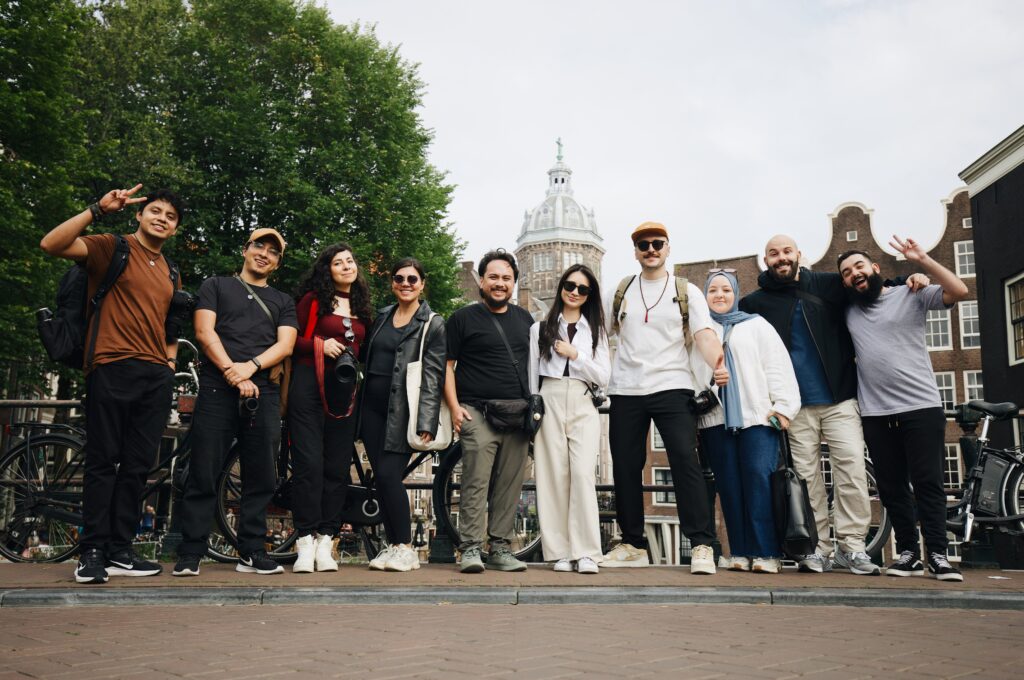Are you dreaming of embarking on an exciting journey, but worried about breaking the bank? Look no further! “Traveling On A Budget: Money-Saving Tips For Your Journey” is here to help you make the most of your adventure without draining your wallet. Discover how to explore the world while still staying within your budget, with expert insights and tips on everything from flights and hotels to car rentals and airfare refunds. Plan your perfect journey and uncover the best deals on BuySellTrip.com, your one-stop destination for travel essentials. Whether you’re a seasoned traveler or a first-timer, get ready to embark on an unforgettable adventure without breaking the bank.
Traveling On A Budget: Money-Saving Tips For Your Journey

Transportation
When it comes to traveling on a budget, choosing budget-friendly transportation options is key. By opting for cheaper options, you can save a significant amount of money on your overall travel expenses. One great way to save is by booking your flights in advance. Airlines often offer discounted prices for those who book early, so be sure to plan ahead and secure your seats as soon as possible.
Using public transportation is another excellent way to save money while getting around. Many cities have efficient and affordable public transportation systems such as buses, trains, and trams. These options are often much cheaper than taking taxis or renting a car, so consider using them to explore your destination.
If you’re feeling adventurous and want to save even more money, consider alternative modes of transportation. Depending on your destination, you might find options like cycling, walking, or even hitchhiking. These methods can be not only budget-friendly but also a unique and immersive way to experience your surroundings.
Lastly, when it comes to air travel, opting for budget airlines can make a significant difference in your travel expenses. Many budget airlines offer lower fares than traditional carriers, although they may have fewer amenities. If you’re willing to sacrifice some comfort for a cheaper ticket, these budget airlines can be a great option.
Accommodation
Choosing budget accommodations is another essential aspect of traveling on a budget. By finding affordable places to stay, you can stretch your travel budget further and have more money to spend on other experiences.
Booking hotels in advance can often lead to more favorable rates. Many hotels offer early bird discounts or promotional rates for those who reserve their rooms ahead of time. By planning your accommodation in advance, you can secure a better deal and ensure you have a place to stay during your trip.
Staying in hostels or guesthouses is another fantastic way to save money on accommodation. These options are usually much cheaper than hotels and can provide you with the opportunity to meet fellow travelers. Hostels often offer dormitory-style rooms or private rooms at affordable prices, making them a popular choice among budget-conscious travelers.
Renting apartments or houses is also worth considering if you’re traveling with a group or planning an extended stay. Platforms like Airbnb offer a wide range of options at various price points, allowing you to find a place that suits your budget and needs. Plus, having access to a kitchen can help you save money on meals by cooking your own food.
For those who enjoy camping or prefer to be close to nature, staying at campgrounds can be an excellent budget-friendly option. Many campgrounds offer affordable rates for tent or RV camping, and this choice can provide a unique and immersive experience in beautiful natural settings.

Food and Dining
Exploring the local cuisine is a must when traveling, and it doesn’t have to break the bank. By following a few money-saving tips, you can enjoy delicious meals without overspending.
Eating like a local is a great way to experience authentic flavors while saving money. Avoiding touristy areas and seeking out local eateries can often lead to more affordable and flavorful meals. Look for small family-owned restaurants or food stalls where locals are dining, as they often offer delicious dishes at reasonable prices.
Cooking your own meals can also help you save a significant amount of money. If you have access to a kitchen in your accommodation, consider buying fresh ingredients from local markets and preparing your own meals. Not only will this be more budget-friendly, but it can also be a fun and rewarding culinary experience.
Trying street food is another excellent way to sample local flavors without spending a fortune. Street food stalls often offer a wide variety of tasty and affordable dishes. Take the opportunity to try out the local specialties and discover hidden culinary gems.
Dining at local or cheap eateries can also help you save money on meals. Look for restaurants or cafes that cater to locals rather than tourists. These establishments often offer lower prices and serve authentic dishes that are both delicious and affordable.
Lastly, try to avoid touristy restaurants as they tend to be more expensive and may sacrifice quality for the sake of catering to a larger crowd. By seeking out local recommendations or using travel apps that highlight budget-friendly dining options, you can enjoy fantastic meals without the high price tag.
Sightseeing and Activities
Exploring your destination’s attractions and engaging in various activities is an essential part of any trip. Here are some money-saving tips to consider when planning your sightseeing adventures.
Researching free or discounted attractions can help you make the most of your budget. Many cities offer free entry to certain museums, parks, or historic sites. Take the time to research and prioritize these attractions as they can provide enriching experiences without costing you a penny.
Using city passes or tourist cards can also be an excellent way to save money on sightseeing. These passes often provide discounted entry to multiple attractions, allowing you to see more while paying less. They can be especially beneficial if you plan to visit multiple museums or landmarks during your trip.
Taking advantage of free walking tours is another great way to explore your destination while keeping your budget in check. Many cities offer free guided walking tours that provide valuable insights into the local culture and history. These tours are often led by knowledgeable locals who are passionate about their city, making them a fantastic option for budget-conscious travelers.
Visiting museums on discounted days can lead to significant savings. Many museums offer discounted or even free admission on specific days or during certain hours. Plan your museum visits accordingly to take advantage of these offers and enjoy the exhibits at a lower cost.
Finding cheap or free outdoor activities is an excellent way to immerse yourself in nature while keeping your expenses low. Hiking, picnicking, or simply enjoying a stroll through a park can provide memorable experiences without costing you a fortune. Additionally, many destinations have free or low-cost outdoor activities such as biking, kayaking, or even joining local community events.

Planning and Booking
Effective planning and strategic booking are essential for a successful budget trip. Here are some tips to help you make the most out of your travel budget.
Creating a travel budget is a crucial step in managing your expenses. Determine how much you can afford to spend on accommodation, transportation, meals, and activities, and allocate your funds accordingly. Having a budget in place can help you make informed decisions about where to splurge and where to cut costs.
Using price comparison websites can save you time and money when booking accommodations, flights, or car rentals. These websites allow you to compare prices from various providers and find the best deals available. Make sure to read reviews and check customer ratings to ensure the providers are reputable.
Booking during off-peak seasons often leads to significant savings. Traveling during less busy times means lower demand for flights, accommodations, and attractions, which can result in better prices. Be flexible with your travel dates if possible and consider visiting popular destinations during their shoulder seasons for the best deals.
Being flexible with your travel dates can also help you find cheaper flights. Use flight comparison websites to explore different departure and return dates. Sometimes, even shifting your travel by a few days can result in significant savings on airfare.
Monitoring and taking advantage of deals and promotions is another way to save money on your trip. Subscribe to newsletters, follow airlines and travel websites on social media, and set up price alerts. By staying informed about discounts and flash sales, you can snag great deals and maximize your savings.
Money Management
Effectively managing your money while traveling can help you stick to your budget and avoid unnecessary expenses. Here are some tips for smart money management on your journey.
Finding the best currency exchange rates is essential to avoid excessive fees. Compare rates from different exchange providers and try to exchange your currency at reputable places. It’s often best to avoid exchanging money at airports or in high-tourist areas, as they tend to have less favorable rates.
Using credit cards with no foreign transaction fees can save you money on every purchase. Look for credit cards that offer this benefit and use them for your travel expenses. Not only will you avoid additional fees, but you may also be eligible for rewards or cashback on your transactions.
Withdrawing cash strategically can help you minimize ATM fees. Before your trip, research any affiliated ATMs or partner banks that will allow you to withdraw cash without or with minimal charges. Plan your withdrawals in advance to avoid unnecessary fees during your travels.
Setting a daily or weekly budget can guide your spending habits and ensure you stay within your means. Determine how much you’re willing to spend each day on meals, transportation, attractions, and souvenirs. Use cash envelopes or budgeting apps to keep track of your expenses and make adjustments if necessary.
Keeping track of expenses is crucial for staying on budget. From meals to transportation costs to souvenirs, record all your expenses in a travel journal, spreadsheet, or budgeting app. This will help you identify where your money is going and make necessary adjustments to prevent overspending.
Packing and Luggage
Packing smartly can not only save you money on extra fees but also make your trip more convenient and enjoyable. Here are some tips for efficient packing.
Packing light is the key to avoiding extra baggage fees and enjoying hassle-free traveling. Only bring essential items and consider packing versatile clothing that can be mixed and matched. Aim to pack everything in a carry-on bag to avoid checked baggage fees and the risk of lost luggage.
Choosing versatile and durable luggage is also important for a budget trip. Invest in a quality suitcase or backpack that will last multiple trips. Look for features like lightweight materials, sturdy zippers, and sufficient storage compartments to make your travels more comfortable.
Bringing essential travel accessories can save you money on the road. Items like travel adapters, reusable water bottles, travel-size toiletries, and packing cubes can make a significant difference. By having these items readily available, you won’t need to purchase them at higher prices during your trip.
Considering laundry options can help you pack lighter and avoid luggage fees. If you’re traveling for an extended period or planning to revisit certain destinations, research accommodations that offer laundry facilities. This way, you can wash your clothes instead of bringing enough for your entire trip.
Using travel packing cubes can help you stay organized and maximize your luggage space. These small cubes allow you to separate and compress your clothing, making it easier to find what you need and fit more into your bag. They are especially useful if you’re planning to move between multiple accommodations during your trip.
Health and Safety
Prioritizing your health and safety is crucial while traveling, and it can also help you avoid unforeseen expenses. Here’s how to stay healthy and safe without breaking the bank.
Getting travel insurance is essential for protecting yourself and your finances. Even if you’re traveling on a budget, travel insurance is not an area to skimp on. It can provide coverage for medical expenses, trip cancellations, lost belongings, and more. Compare different insurance providers and choose a plan that suits your needs and budget.
Researching and preparing for health risks can save you from unnecessary expenses and discomfort. Check if any vaccinations are required for your destination and get them in advance. Pack a basic first aid kit with essential medications and supplies. Familiarize yourself with local healthcare options and emergency contact information.
Staying safe in new destinations is essential for avoiding potential risks and expenses. Research the areas you plan to visit and stay informed about any safety concerns. Travel with a money belt or a secure bag to protect your valuables, be cautious of your surroundings, and follow local laws and customs.
Avoiding unnecessary expenses from accidents or illnesses is crucial for staying on budget. Take precautions to prevent common travel ailments like food poisoning or sunburn. Stay hydrated, use sunscreen, and practice good hygiene. By taking care of your health, you can save yourself from unexpected medical costs.
Keeping an emergency fund is a wise practice for any traveler. Set aside some extra money for emergencies or unforeseen expenses. This fund can provide peace of mind and act as a safety net should any unexpected situations arise during your journey.
Communication
Staying connected while traveling can help you navigate new destinations and stay in touch with loved ones. Here are some tips for affordable communication options.
Using free or low-cost communication apps can save you money on international calls and texts. Apps like WhatsApp, Skype, or Viber allow you to make calls and send messages over Wi-Fi or data, often at no additional cost. Take advantage of these apps to stay connected without incurring hefty roaming charges.
Getting a local SIM card can provide you with affordable data and call options. Many countries offer prepaid SIM cards for travelers, allowing you to access local networks and avoid expensive roaming fees. Research the available options before your trip and purchase a SIM card upon arrival.
Using Wi-Fi hotspots is an excellent way to stay connected without incurring additional costs. Many cafes, hotels, and public areas offer free or low-cost Wi-Fi access. Take advantage of these hotspots to check emails, plan your itinerary, or communicate with others without using your data plan.
Researching international calling and data plans is important if you need to make frequent or longer calls during your trip. Contact your mobile provider and inquire about any available international plans or packages. Determine if these options fit your budget and needs before making any commitments.
Using internet calling services, such as Skype or Google Voice, can be an affordable way to make international calls. These services often offer low rates for calls to landlines or mobile phones, making them a cost-effective option for staying in touch with those back home.
Tips for Souvenirs and Shopping
Bringing back meaningful souvenirs is a wonderful way to remember your travels, but it’s important to budget and shop wisely. Follow these tips to make the most of your souvenir shopping.
Shopping at local markets or street vendors can be an excellent way to find unique and affordable souvenirs. These places often offer handmade crafts, local textiles, or traditional items that showcase the culture and heritage of your destination. Bargaining or negotiating prices may also be possible at these local markets.
Negotiating prices is a common practice in many countries and can help you get a better deal on souvenirs. Have fun with the bargaining process and remember that it’s part of the local culture. Start with a lower offer and work your way up to a price you’re comfortable with. Just make sure to be respectful and mindful of local customs.
Avoiding tourist traps is crucial for finding budget-friendly souvenirs. Tourist areas often have inflated prices, targeting unsuspecting visitors. Venture away from these areas and look for smaller shops or markets frequented by locals. You’ll often find better deals and more authentic products.
Collecting unique and meaningful souvenirs allows you to create lasting memories of your trip. Look for items that reflect the local culture or are significant to your destination. Whether it’s a piece of traditional clothing, local artwork, or a small trinket, select souvenirs that hold personal value and remind you of your travel experiences.
Setting a souvenir budget can help you manage your expenses and prevent overspending. Determine how much you’re willing to allocate for souvenirs and stick to that amount. This way, you can enjoy the shopping experience without putting a strain on your overall travel budget.
Traveling on a budget doesn’t mean you have to skimp on experiences or miss out on the best aspects of your trip. With careful planning, strategic thinking, and a little creativity, you can enjoy a fantastic journey without breaking the bank. Use these money-saving tips to make the most of your travel adventures and create unforgettable memories while sticking to your budget. Safe travels!



